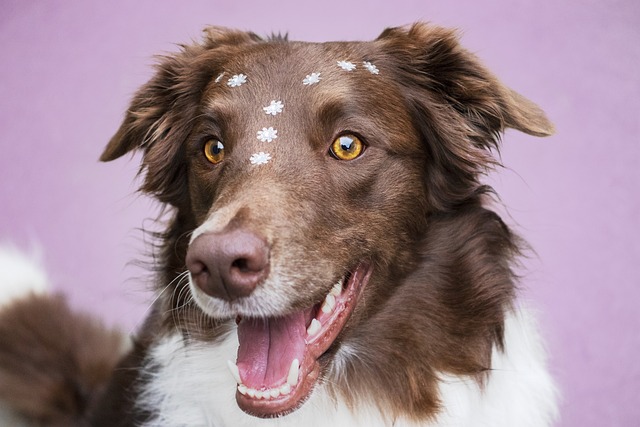
What is glaucoma in a dog?
You might notice your dog squinting more at mealtime or avoiding bright sunlight—these small changes could be early signs of a serious eye condition.
If you've ever seen your energetic pup looking listless, with dry gums and sunken eyes, you might be dealing with a dehydrated dog. For new dog owners in the US, it can be a scary sight, but understanding how to handle it at home can make a big difference.
Dogs, like humans, need water to survive. Their bodies are made up of 60 - 70% water, which helps with digestion, circulation, and regulating body temperature. When they're sick, overheat, or don't have access to enough water, they can quickly become dehydrated. Dehydration occurs when a dog loses more fluids than it takes in. This can lead to a variety of problems, from mild discomfort to life - threatening organ damage if left untreated. For instance, diarrhea and vomiting can cause rapid fluid loss, and a dog with a fever will pant more, losing moisture in the process.
If you suspect your dog is dehydrated, there are steps you can take at home, especially for mild cases. First, check for signs like dry, sticky gums, loss of skin elasticity (gently pinch the skin on the back of their neck - if it doesn't spring back quickly, that's a sign), and sunken eyes. Offer small amounts of water frequently. For a small dog, give about a teaspoon every 10 - 15 minutes. For medium to large dogs, a tablespoon to a quarter - cup at a time is appropriate. You can also try offering ice cubes for them to lick; the slow melting helps rehydrate them without overloading their system. Another option is to give them a bit of unseasoned, diluted chicken broth, which not only provides fluids but also some electrolytes. However, if your dog is vomiting or has severe diarrhea, it's best to call your vet first before trying these.

In the US, keeping your dog healthy is not just about treating dehydration. Legally, all dogs must be vaccinated against rabies in every state. A well - vaccinated dog is less likely to get sick and become dehydrated in the first place. When you're out walking your dog, even if they're feeling under the weather, always clean up after them. Many cities, like New York, have strict laws about dog waste in public areas, with fines ranging from $50 to several hundred dollars. Failing to do so can spread diseases and is just plain rude to your neighbors.
Culturally, never punish your dog for being sick or not drinking. Positive reinforcement is key. If your dog takes a sip of water, give them a gentle pat and a soft word of praise. If you live in an apartment, make sure your dog has easy access to water at all times. Keep their water bowl in a quiet, accessible spot away from their food. When you're out in the community, be mindful of other people and pets. If your dog is dehydrated and not feeling well, they might be more irritable, so keep them on a short leash to avoid any altercations.
Remember, while you can start treating mild dehydration at home, if your dog's condition doesn't improve, or if you suspect severe dehydration, it's crucial to get them to the vet as soon as possible. With a little care and knowledge, you can help your furry friend get back on their feet and back to their happy, hydrated selves.

You might notice your dog squinting more at mealtime or avoiding bright sunlight—these small changes could be early signs of a serious eye condition.

Let’s set the scene: It’s a sweltering Phoenix afternoon—105°F outside—and you rushed your 2-year-old Lab mix, Cooper, on a quick walk to “get it over with.”

Let’s get real: You’re in your Miami apartment, watching your 3-year-old Corgi, Loki, struggle to climb the stairs to your second-floor unit.

Many dog owners brush off occasional scratching as just “dog behavior,” but persistent itching often signals something more—like a food allergy.

You might first notice your dog scratching more than usual—chewing at their paws until the fur looks thin, or rubbing their face against the couch nonstop.

Let’s be real: You’re standing in your Chicago apartment, watching your 3-year-old Beagle, Max, huff and puff just to climb onto the couch.